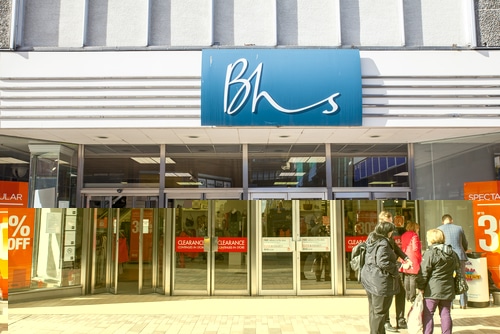Not for the first time in recent months, the issue of pensions has hit the headlines and become a topic of concern for all areas of the business and not just the finance function.
When former retail stalwart BHS went into administration in April this year, it left a pension deficit of £571 million for more than 20,000 members, which has caused outcry from members of the public and the finance community keen to understand how this failure could occur on such a scale.
One of the most fractious incidents in the scandal has undoubtedly been the interrogation of former owner and Arcadia boss Sir Philip Green who appeared before MPs at a joint hearing on 15 June. During the fiery session, which took a decidedly personal turn as Sir Phillip sparked controversy by barking at Conservative MP for Bedford and Kempston, Richard Fuller: “Do you mind not looking at me like that? It’s really disturbing.” And Green also admitted, “I can answer virtually no questions on the pension”, but that “someone had quite clearly fallen asleep at the wheel”.
The pension scheme, ominously named Project Thor, now looks set to be absorbed by Pensions Funds at a cost of £275 million.
Getting personal
In another particularly fractious moment of the scandal, the beleaguered Sir Philip demanded an apology for what he deemed “an outrageous outburst” from MP, Frank Field. When Field alleged the scandal had given the impression that business was about “nicking money off other people”, Sir Philip furiously replied “accusing me and my family of theft is totally false and unacceptable on any basis.”
Field said: “What’s required is a very large cheque from the Green family who have done so well out of the whole of this.
“The image you put over is that everybody in business is not about creating jobs, about spreading wealth but nicking money off other people.” Green responded: “Mr Field’s outrageous outburst today demonstrated yet again his clear prejudice against myself, my wife and my executives, who turned up for a second time.”
The role of the media
For many observers, one of the most remarkable aspects of the debate has been to again underscore the disastrous PR potential of a mismanaged pension, which had been previously brought into focus by the Tata Steel scandal. As part of the Tata fallout, some 700 employees risk losing up to £20,000 a year if the fund is transferred to the Pensions Protection Fund.
“There are a number of things that have put pensions into people’s consciousness during the past five or 10 years and so much of it is positive,” says president of the Pensions Management Institute, Kevin LeGrand. “However, when a story like this breaks with a big household name, it does make people start to think about it and relate that to their own experience.”
One thing is clear, the debate surrounding BHS will continue for months and potentially years. “We are still a long way from the end of the BHS story,” he says. “There is a valid concern, in the pensions industry that, although it’s useful to have an open public discussion about these issues, it needs to be a balanced discussion.
“It is quite easy to focus on one particular case where something might appear to have gone wrong, in terms of the outcome not being as good as people had hoped. But in context, this is one scheme out of thousands that work perfectly well. It is human nature to concentrate on the bad news but lessons can be learned when things have gone wrong.”
Remember to keep an eye out for future issues of the magazine and our website for more coverage of the awards, and updates on the BHS scandal as it unfolds.


Be the first to comment on "How the BHS pensions scandal unfolded"